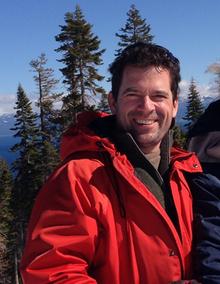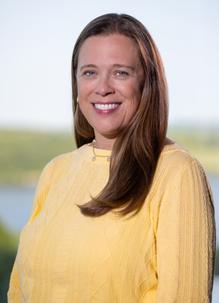|
|||
|
|||
James Workman and Amanda Leland are the authors of Sea Change: Unlikely Allies and a Success Story of Oceanic Proportions (Torrey House Press, September 30, 2025), the compelling story of hard-driving fishermen and determined conservationists working together to turn the tide on overfishing. In this vivid, accessible book, they argue for a system that could serve as a blueprint for solving other environmental crises.
James Workman is a storyteller, entrepreneur, and author of resilience strategies, including the award-winning book Heart of Dryness. He founded AquaShares, a firm pioneering water credit trading, and has been published in the New York Times, the Los Angeles Times, the New Republic, Orion, Trout, and Washington Monthly. Workman studied at Yale, Oxford, and Stanford, and taught at Wesleyan and Whitman. But his real education came from wildfire recovery, reintroducing wolves, blowing up dams, smuggling to dissidents, getting married, and raising two daughters.
Amanda Leland fell in love with the sea at five years old, when her grandfather taught her to fish. She is executive director of Environmental Defense Fund and previously led EDF's Oceans program, a global team focused on reversing overfishing while supporting those whose livelihoods rely on fish. An avid kayaker and scuba diver, Leland holds a master's degree in marine biology and lives with her family in Washington, D.C.
What was the origin of this book?
It's the classic, counterintuitive "man bites dog" story, right? Against the ubiquitous headlines warning our oceans were running out of fish and "deadliest catch," we knew there was a counter-narrative of quiet recovery, innovation, and collaboration. Fishing was growing safer, more ecologically resilient, and more prosperous, yet almost no one knew it. That silence was our opportunity: to share this well-kept secret of offshore transformation with fellow landlubbers.
The scale and complexity of this story ruled out a blog series or even a long magazine feature. Moreover, it cried out for a deeply human protagonist, someone who faced storms, institutional obstacles and his own doubts. That search led us to Buddy Guindon, a Galveston captain whose life traced the arc of modern fishing: from unregulated abundance to dangerous depletion, from the most dangerous profession to calm seas, from fierce resistance to steady reform. Through Buddy's eyes we could share how a remarkable inner shift, combined with real agency, altered the fate of a fishery and sent ripples outward to the region, the nation, and the world.
How did the two of you come to this project?
For two decades, on opposite coasts, we had been watching this story take shape and sensed it needed to be told in full. On the Atlantic, Amanda, a trained marine biologist turned environmental advocate, was building coalitions, educating policymakers, and supporting new solutions. On the Pacific, Jamie, fascinated with hunter-gatherer societies, was interviewing fishermen from Mozambique, India and Belize to Lake Michigan, the Gulf, and his native California coast.
Both of us kept hearing the same universal, fatalistic trap: "If I don't catch the last fish, someone else will." We realized our distinct but converging perspectives could make the book richer and more compelling: Amanda could open insights into ocean ecology and the political tensions behind reform; Jamie could personalize the stakes for readers with a firsthand view of life and death on the docks, bars and decks offshore.
What are your roles as coauthors?
It's an iterative process of talking, writing, rewriting... then rewriting again. Amanda brought science knowledge, policy experience, and relationships with key players like Buddy. Jamie had flexibility to explore narrative structure, conduct dockside or barstool interviews, research scientific documents, and distill complex systems into human stories that would resonate beyond the waterfront.
Drafts got passed back and forth until even red ink Track Changes could no longer tell who had revised what. When we disagreed, our exchanges mirrored the trust-building central to the book, the delicate negotiations between conservationists and fishermen, scientists and policymakers, who must work past suspicion to get results.
What does the research process look like for a project of this scope?
Messy, immersive, and a little salty. We logged hundreds of hours in interviews listening to fishermen, scientists, seafood dealers, policymakers, and critics. We tracked EDF's decades-long efforts to advance sustainable fisheries. We sifted through historical archives, economic data, and stock assessments, where otherwise dry material might yield some fresh angles or surprising discoveries. For example, among our title's "unlikely allies," Thomas Jefferson and Alexander Hamilton set aside a lifetime of political rivalry to unite, perhaps for the only time, behind an economic vision for America's fisheries based on "sharesmen."
The work took us from early-morning commercial harvests to fluorescent-lit stakeholder workshops, from policy conferences in Washington to cutting bait on a skiff in southern Belize. We found patterns: secure rights, clear rules, and shared stewardship could take root in wildly different contexts, from tropics to arctic, and we tried to bring those contrasts to life on the page.
The structure you use, a journey from personal to global, feels very natural. How did you come to it?
It grew organically, with form following function. Other approaches--framed on a single species, gear innovation, era, or location--lacked the human flow and rising stakes we wanted. By chance, the formal evolution of catch shares paralleled Buddy's personal journey from alienation to reconciliation, from antagonism to collaboration, from fighting the old system to advocating for the new.
His growing concern radiated outward: from family, Galveston bar and first boat, to the local wharf, fish house, and rival yacht club, then to his coastline, country, Gulf Stream, and fishing communities worldwide. That expansion mirrored the spread of an unlikely idea that began with skepticism yet matured into stewardship. Helping readers identify with Buddy made the story tensions real; scaling up made the stakes consequential.
That arc also let us show a universal truth: fishery management is really people management. And since few of us (not just Buddy) like to be managed by distant strangers, the challenge is to overcome the legacy of distrust and rediscover how to manage from within the community, because the people closest to the problem are often also closest to the solution.
What do you hope results from this book's publication?
There is an undeniable despair and cynicism about how, or if, we can sustain a healthy, clean, life-giving planet for all of us. It's too easy, especially while shopping in well stocked supermarkets, to point fingers at "commerce" or "industry" and blame remote "others" for ecological decline, or to cut off access to resources so essential to the health, nutrition, and security of billions.
Sea Change wants to replace simplistic blame and fatalistic shrugs with a proven, science-based case for practical hope. We want readers to see that "wicked problems" aren't always intractable, that solutions can emerge from unexpected alliances, and that those most directly tied to the fate of a resource can become its fiercest protectors when given the right incentives.
We also hope the book sparks a wide conversation about how the same principles that saved fisheries could help us restore mature forests, groundwater, soil fertility, and even slow climate change. If a Gulf Coast "pirate" can transform into a guardian of the sea, imagine what the rest of us can do? --Julia Kastner



